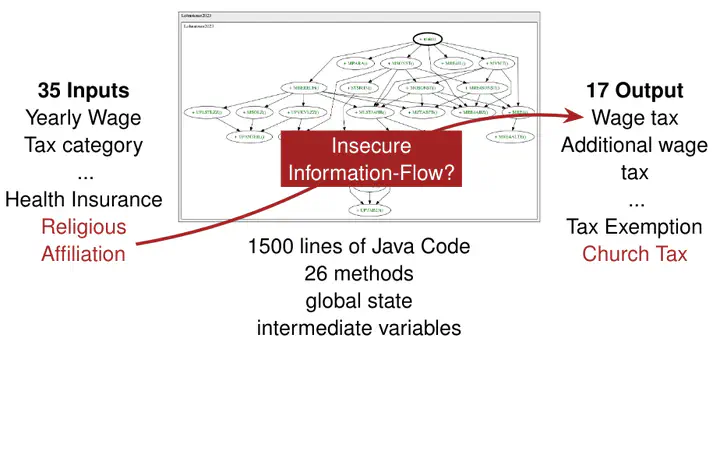 The computation of the german wage tax uses religious affiliation as an input. This is necessary to compute the church tax. But does it inadvertedly modify other outputs?
The computation of the german wage tax uses religious affiliation as an input. This is necessary to compute the church tax. But does it inadvertedly modify other outputs?
Abstract
This work presents insights gained by investigating the relationship between algorithmic fairness and the concept of secure information flow. The problem of enforcing secure information flow is well-studied in the context of information security: If secret information may “flow” through an algorithm or program in such a way that it can influence the program’s output, then that is considered insecure information flow as attackers could potentially observe (parts of) the secret. There is a strong correspondence between secure information flow and algorithmic fairness: if protected attributes such as race, gender, or age are treated as secret program inputs, then secure information flow means that these “secret” attributes cannot influence the result of a program. While most research in algorithmic fairness evaluation concentrates on studying the impact of algorithms (often treating the algorithm as a black-box), the concepts derived from information flow can be used both for the analysis of disparate treatment as well as disparate impact w.r.t. a structural causal model. In this paper, we examine the relationship between quantitative as well as qualitative information-flow properties and fairness. Moreover, based on this duality, we derive a new quantitative notion of fairness called fairness spread, which can be easily analyzed using quantitative information flow and which strongly relates to counterfactual fairness. We demonstrate that off-the-shelf tools for information-flow properties can be used in order to formally analyze a program’s algorithmic fairness properties, including the new notion of fairness spread as well as established notions such as demographic parity.